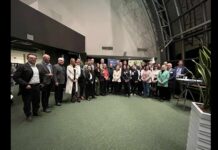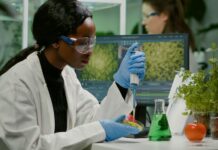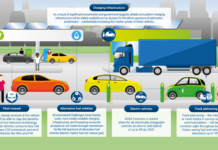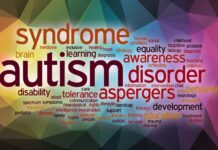Science and Research Task Force Working Group High Representatives are:
Prof.Dr.Vesna Gantner, University of Osjek, HR. Agrobiotechnical Sciences Osijek. Vesna Gantner, PhD in Zootechnics from the biotechnical scientific field, agricultural scientific field.  She is employed at the Faculty of Agriculture in Osijek as a scientific trainee on the project “Selection in the function of improving the production of milk and beef cattle (0079041), led by Prof. Dr.Sc. Sonja Jovanovac. As an author or co-author, she published more than 30 scientific papers. She was a collaborator on two scientific projects; two bilateral scientific and technological projects between the Faculty of Agriculture in Osijek and the Faculty of Biotechnology in Ljubljana; She was the head of a scientific project of the NZZ. She is currently a collaborator on the scientific project “Analysis and genetic evaluation of longevity in dairy cattle” led by Prof. Dr.Sc. Sonja Jovanovac and on the VIP project “Assessment of breeding value of pigs on family farms” led by Assoc. Ph.D. Zoran Luković; and head of the VIP project “Methods for estimating the lactation amount and milk composition of cows”. At the moment she leads the project “Transformation in agriculture in a rapidly changing climate: A BILATERAL COLLABORATION IN EDUCATION AND RESEARCH BETWEEN NORWAY AND CROATIA”
She is employed at the Faculty of Agriculture in Osijek as a scientific trainee on the project “Selection in the function of improving the production of milk and beef cattle (0079041), led by Prof. Dr.Sc. Sonja Jovanovac. As an author or co-author, she published more than 30 scientific papers. She was a collaborator on two scientific projects; two bilateral scientific and technological projects between the Faculty of Agriculture in Osijek and the Faculty of Biotechnology in Ljubljana; She was the head of a scientific project of the NZZ. She is currently a collaborator on the scientific project “Analysis and genetic evaluation of longevity in dairy cattle” led by Prof. Dr.Sc. Sonja Jovanovac and on the VIP project “Assessment of breeding value of pigs on family farms” led by Assoc. Ph.D. Zoran Luković; and head of the VIP project “Methods for estimating the lactation amount and milk composition of cows”. At the moment she leads the project “Transformation in agriculture in a rapidly changing climate: A BILATERAL COLLABORATION IN EDUCATION AND RESEARCH BETWEEN NORWAY AND CROATIA”
Prof.Dr.Gjoko Bunevski, UKIM, MK. More than 10 years a visiting professor in Slovenia at  the Faculty of agriculture at the University of Maribor on the subjects: Ethology of animals, and Technology of breeding and agrieconomics of horse rearing. He is also a National Coordinator in the R. of Macedonia for: 1) Biodiversity and 2) Book Recording of Dairy Cattle in Macedonia, nominated from the Ministry of Agriculture, Forestry and Water. He is active in national and EU projects and initiatives improving the indigenous Natural Meat Production, living standards of people, animals, plants and environment in the rural and urban areas. He is also focusing on VET and learning new skills especially among young people as graduated and undergraduate students, as well as (RDI) activities. Publications – published 115 papers (scientific and expert) in the state and abroad, 2 books and 15 booklets.
the Faculty of agriculture at the University of Maribor on the subjects: Ethology of animals, and Technology of breeding and agrieconomics of horse rearing. He is also a National Coordinator in the R. of Macedonia for: 1) Biodiversity and 2) Book Recording of Dairy Cattle in Macedonia, nominated from the Ministry of Agriculture, Forestry and Water. He is active in national and EU projects and initiatives improving the indigenous Natural Meat Production, living standards of people, animals, plants and environment in the rural and urban areas. He is also focusing on VET and learning new skills especially among young people as graduated and undergraduate students, as well as (RDI) activities. Publications – published 115 papers (scientific and expert) in the state and abroad, 2 books and 15 booklets.
“Livestock Husbandry, Zootechnics, and Indigenous Natural Meat Production” Task Force Working Group is focusing on practical projects and promotion of sustainable and culturally sensitive practices in livestock husbandry, zootechnics, and meat production, with a specific emphasis on indigenous communities. These practices will encompass traditional knowledge, ecological sustainability, and animal welfare. Here are some potential actions and initiatives that task force working group will undertake to develop and implement projects:
- Indigenous Knowledge Preservation: Collaborate with indigenous communities to document, preserve, and promote traditional knowledge and practices related to livestock husbandry, zootechnics, and meat production.
- Sustainable Grazing and Pasture Management: Promote sustainable grazing practices that prioritize land regeneration, biodiversity conservation, and soil health in accordance with indigenous traditions and ecological principles.
- Animal Welfare Standards: Develop and promote animal welfare guidelines and standards that prioritize the humane treatment of livestock throughout their lifecycle, considering indigenous perspectives on animal welfare.
- Indigenous Breeds Preservation: Support the conservation and revitalization of indigenous livestock breeds that are adapted to local environments and have cultural and genetic significance.
- Regenerative Agriculture: Advocate for regenerative agricultural practices that integrate livestock into cropping systems, improving soil health and reducing the need for synthetic inputs while respecting indigenous land management practices.
- Local Meat Processing Facilities: Facilitate the establishment of local, small-scale meat processing facilities that adhere to hygiene and safety standards, ensuring accessibility to indigenous farmers.
- Value-Added Processing: Explore opportunities for value-added meat processing, such as traditional curing, smoking, or preserving techniques, to increase the market value of indigenous meat products.
- Cultural Awareness: Raise awareness and appreciation of indigenous cultures and traditions related to livestock husbandry, zootechnics, and meat production.
- Training and Capacity Building: Provide training and capacity-building programs for indigenous farmers, emphasizing sustainable livestock management, animal health, and meat processing in line with indigenous practices.
- Disease Management: Collaborate on disease prevention and management strategies to protect livestock health and reduce the risk of disease transmission in ways that align with indigenous values.
- Community-Based Livestock Management: Support community-based approaches to livestock husbandry and zootechnics, where decisions are made collectively, and the benefits are shared among community members, respecting indigenous governance systems.
- Research and Documentation: Conduct research on the nutritional value, cultural significance, and ecological sustainability of indigenous meat products. Document success stories and best practices.
- Policy Advocacy: Advocate for policies that recognize and support indigenous rights, land tenure, and traditional practices related to livestock, zootechnics, and meat production.
- Economic Empowerment: Promote income generation and economic opportunities for indigenous communities through sustainable livestock production, zootechnics, and meat processing.
- Food Security: Address food security issues in indigenous communities by enhancing the availability and accessibility of nutritious meat products produced through sustainable practices.
- Environmental Impact Assessment: Conduct assessments of the environmental impact of livestock husbandry, zootechnics, and meat production practices and identify opportunities for ecological restoration and conservation.
- Collaboration with Indigenous Organizations: Partner with indigenous organizations, leaders, and knowledge holders to ensure that initiatives are culturally sensitive and aligned with community priorities and decision-making processes.
- Monitoring and Evaluation: Establish mechanisms for monitoring the impact of initiatives on indigenous livestock husbandry, zootechnics, and meat production, including social, economic, cultural, and environmental outcomes.























